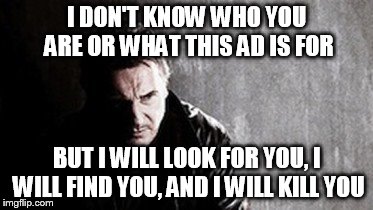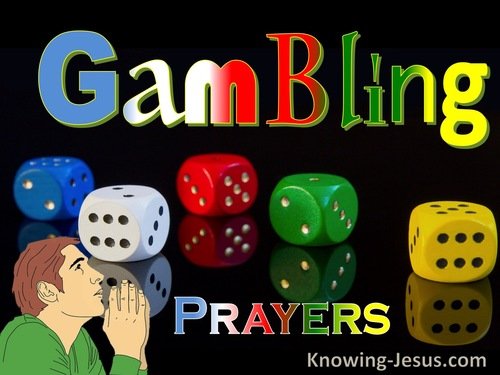Gambling Will Kill You
Posted : admin On 4/5/2022Gambling is a temptation, but seeing gambling as an addiction is a significant step because it permits you to use skills from addiction recovery and relapse prevention. For someone in recovery, avoiding people, places and activities linked to gambling can help them avoid a setback. Alcohol will kill you, gambling will lead to suicide. It depends how bad the addictions are, neither is benign and they're both fun. Be responsible folks and live a long happy healthy life of.
If there’s any activity that runs counter to everything self improvement stands for, gambling has got to be one of them. There’s way too much rooted into gambling that can really blow up in your face. It seems harmless at first but like a wildfire, it can get real out of control, destroying your financial future, marriage, relationships with others.
Look at the underlying basis of gambling.
Getting money for doing nothing. Getting money for being of absolutely no service, value, or help to others. Relying on chance instead of your own personal responsibility.

The act itself is rooted in greed.
By constantly gambling, you constantly think – let me try to get something for nothing.
When you lose the money you’re gambling, what do you do?
Ask other people for money.
Another form of getting something for nothing.
When that option runs out, what do gamblers do?
They start stealing to support their gambling addiction.
Another form of getting something for nothing.
And here’s what most people don’t seem to notice about gambling.
The people who gamble because they need money – they lose it.
Why?
Because they’re too emotionally invested.
They’re too attached to the money they’re gambling with.

The people who “win” at gambling are the ones who ALREADY have a ton of money and don’t need the money they’re gambling with and as a result, can be a bit more objective and take more chances liberally.
But even if they win, it plants that seed into their mind that they can get something for nothing and that can start them down a very dark path. You don’t want that kind of thinking constantly going through your head.


But let’s say you don’t have a ton of money but by some long shot, you win anyways.
You still lose.
Why?
Because you’ve missed out on the opportunity to BECOME the kind of person who can find a way to serve people and earn that money instead. You miss out on developing the traits of patience, focus, vision, persistence, service, action, etc., and that in it of itself is worth more than any amount of money, to develop yourself to your highest potential.
Notice how the lotto winners, the majority of them lose it all because they have NOT become the kind of person who has developed to the point where they can handle the money. They blow it all away. They have no patience, self control, delayed gratification, etc.
Avoid gambling at all costs, even the little forms such as betting on a game with friends, poker night, scratch off tickets, because it’s so easy to make an exception and start slowly sliding down that hill, taking on more serious forms of gambling, getting a bookie, going to Vegas, etc.
And if you see ads here on gambling, before you accuse me of hypocrisy, know that it’s just Google Adsense’s algorithm doing its thing. It sees the word gambling a lot in here so it assumes I talk about gambling and displays ads about it.
Avoid the easy way out trap that gambling takes the form of.
No matter what, you will always lose in the long run, even if you win.
Insidious: in an inconspicuous or seemingly harmless way, but actually with grave effect.
Gambling Disorder (a.k.a. compulsive gambling or gambling addiction) is an insidious disease. It is increasing dramatically in the United States and around the world. Only a few decades ago, the only places to gamble legally in the U.S. were Las Vegas, Atlantic City, or the racetrack. Today, there are large casinos in virtually every state – over a thousand full-scale casinos with over a million slot machines. Not only are gambling opportunities available within a short driving distance, they are available in our homes and in our hands through mobile devices.
One is only a Google search away from reading reports from gambling commissions around the world to realize that over half of those who gambled, used mobile devices, with slot type of gaming being steadily popular as the boundaries between social casino gaming and commercial gambling become increasingly blurred. With this sudden exponential increase in access comes the rapid and significant increase in addicted gamblers.
“Heroin could no longer numb my pain, but slots could.”
Gambling Will Kill Your Darlings
Regardless of the type of gambling, gambling addiction can lead to suicide. The emphasis of Mr. Dahl’s book is on slot machine gambling. Slot machines are called the “crack-cocaine” of gambling for a reason. The near-miss and other design features along with the ability to spend more time on devices (games) without interruption contributes to slots being king in the gambling world in terms of profit but also for addiction potential. The above profound statement, made by a person experiencing a gambling disorder and issues of unresolved grief, is all the heartbreaking proof you need.
Problem gambling is a public health issue that can have serious consequences for all involved. As there continues to be increased access to all forms of gambling across the United States through state-sanctioned gambling, as well as technology advances prompting on-line gambling, and changes in legislation legalizing many forms of gambling that were previously unavailable, adults and in particular youth, are likely to continue to experience negative consequences of problem gambling.
As reported by the National Council on Problem Gambling, one in five individuals experiencing a gambling disorder will attempt suicide, a rate many times higher than any other addiction. An explosion of newly addicted gamblers could result in a disturbing and dramatic increase in gambling related suicides. We have already seen it with slot machines over the past couple of decades. This sad and dangerous upward trend will continue and accelerate for years to come. Thousands of lives are lost every year. Families are shattered. The issue of suicide by people who have lost everything to gambling must be addressed and ultimately dealt with in a way that has a positive impact.
Mr. Dahl’s book is relevant, particularly in today’s changing world. Many people find themselves gambling to escape the stressors they have encountered in life. The COVID-19 pandemic has brought about isolation, grief, trauma, boredom, and financial problems; all risk factors associated with problem gambling.
Starting from it’s original title – Please Don’t Kill Yourself Today (You Can Always Do It Tomorrow) – and ending with the appendix which makes a reasonable calculation of annual suicides by problem gamblers, Mr. Dahl’s book is a breakthrough in bringing gambling-related suicides to the forefront of our thinking about gambling addiction.
Everyone experiencing a gambling problem should read this book. More than half of the book outlines ways to help with gambling treatment and recovery. But I also want to offer advice to all the counselors and trained professionals that read this book.
Gambling Will Kill Your Appetite
First, understand that problem gamblers are extremely secretive about their gambling, in large part due to feelings of shame. If you are a mental health provider, or an addictions counselor, it is very likely that you are already seeing someone who has been negatively impacted by someone’s gambling, if not their own. Have the conversation and screen for problem gambling. There are high rates of co-occurring conditions in people experiencing problem gambling. Depression and alcohol use disorder are two of the most common.
Second, if you are treating someone for their gambling problem, continue to assess for and discuss suicidal ideation with them. Since you are reading this book right now, you will soon learn Mr. Dahl’s specific plan for preventing the gambler from committing suicide. Please discuss and work that plan with your client. It might just save their life.
Gambling Will Kill Your Name
I cannot emphasize enough how important this book is to every addiction counselor and mental health professional. Please spread the word to all your colleagues. Let’s save lives!
Gambling Will Kill Your God
Project Turnabout’s Vanguard Center for Gambling Recovery